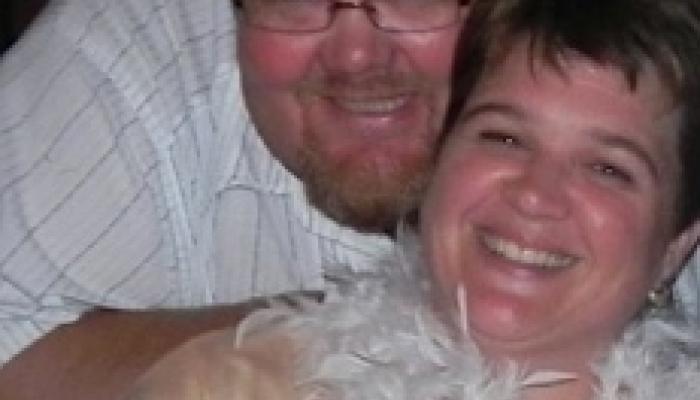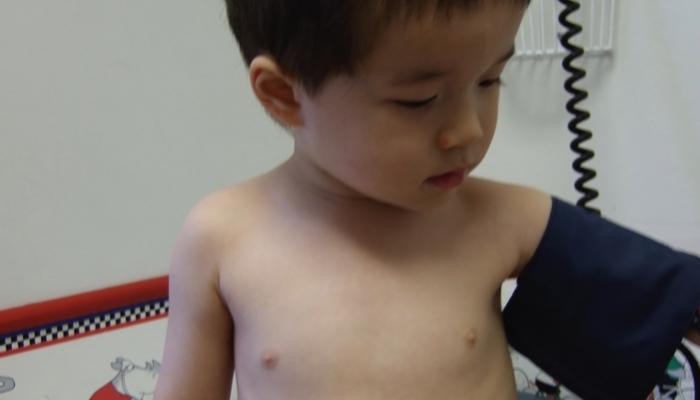Learning to Forge my Own Identity while Living with Cerebral Palsy

I am a wife, mother, teacher and advocate for people with disabilities. By the way I have cerebral palsy and I have had a stroke.
Being asked to write this piece to pass on knowledge to help other people has been challenging.
As parents we all strive to provide a loving and secure environment for our children. Those parents who have differently abled children find themselves concerned with the long term implications of having a child with a unique set of challenges. They hope that their child will benefit from therapy that will allow them to develop. In certain instances they also need to shield them from the harsh realities of life. With this in mind, schools are chosen based on their willingness to assist their children being successfully integrated into mainstream society.
Having a disability and learning to accept it is a process; one which may take a lifetime to achieve. The emotional aspect of a disability is not always a comfortable topic of conversation, for either parents or children. While successfully integrating their children into school there is an unspoken hope that this will include and incorporate the emotional aspect of their development too.
Children grow up to become teenagers. This often includes agonising years of trying to find one’s own identity while integrating the perceived notions and expectations in magazines, television and social media.
The expectations of differently abled teenagers are no different. In fact, the pressure is sometimes greater as it is often during this time that they become acutely aware of their uniqueness. Despite their good intentions and trying to provide opportunities to benefit from a mainstream environment, parents may find that children with disabilities are often confronted with conflicting emotions. These emotions are amplified by the reality of their circumstances and trying to interpret and apply the values being projected back at them.
Their reality may be the complete opposite. By providing children the opportunity to express their emotions and disappointments safely you give them unique tools to let go of their own and others preconceived ideas of normality. You also create space for them to forge their own identities.
When I was younger and pictured my life it was never with a husband or children. When I got married I was faced with the challenge of incorporating the expectations others had of me with my own. When both my sons were born the expectation increased. There were certain realities that were not always easy but needed to be addressed, from cooking, changing nappies, driving and picking my children up.
I learned to forge my own reality. My husband and I cooked together, he changed nappies more often than I did and, where possible, I encouraged my children to be independent.
I wanted to be honest with my children: allow them to feel anger, frustration and disappointment as these are all normal feelings that we all feel even if we fear them. More often than not we have a fairytale interpretation of our children’s emotions pretending that they don’t exist.
Honesty is a powerful weapon and one that we seldom think to use.
If I were to share one piece of advice it would be to be honest with yourself, the circumstance and your child. It is not always the most popular decision or the easiest one to make, but if they are to become productive and contributing members of society there is a certain amount of reality they will have to come to terms with.
By giving them this you give them the greatest gift of all: Strength. You also give them an understanding of their abilities, their weaknesses and their future. One that is determined not by others but by themselves. You will also allow them to determine who and what they want to become and what they will allow to influence and affect them. Choosing their attitude is by far one of the most important aspects in the development of a differently abled person.
Lesley Potgieter was born with cerebral palsy. Despite her disability she overcame a number of challenges and obstacles and qualified as a primary school teacher. When the first of her two sons was born Lesley took a break from teaching and focussed on raising her family. Being a mom of young boys she realized that there were very few audio stories available for kids. Lesley then started writing stories and recording them in a studio. Her Never-Ending Stories are now available for immediate download. You can learn more about Never-Ending Stories on her website or on Facebook. Also check out her Aware Bears Campaign. Aware Bears create awareness and support for people and families living with Cerebral Palsy.
Related Posts

Advocacy, Special Needs
Advocacy Strategies for Parents of Special Needs Children
Learn about effective advocacy strategies for parents of special needs children and discover how to ensure the best possible outcomes for your child.

Advocacy
How to Work with Difficult Doctors & Therapists
As the parent of a disabled child you probably have to meet with quite a few doctors and therapists. What can you do if you just don't agree with their...

Advocacy, Parenting
Family vs Ableism: What I’ve Learned As a Mother of a Child with a Disability
Is it more important to be worried about how you're presenting yourself and your family to the outside world and the wider disability community, or to focus on the needs...